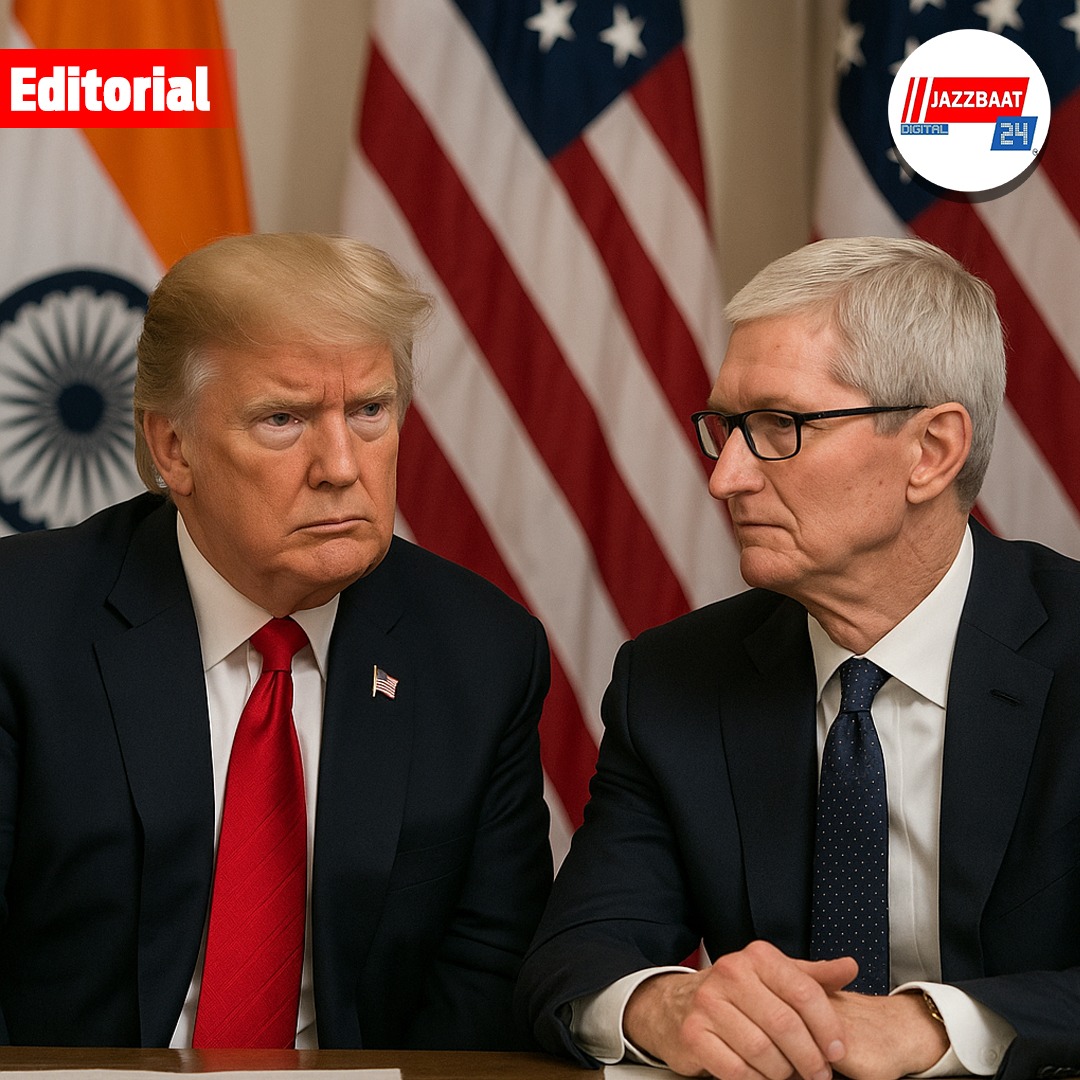
Recently, Donald Trump made a request to Apple CEO Tim Cook, which has challenged not only India but also the entire international trade and globalization. Trump said that Apple should increase its manufacturing capacity in India only for the Indian market, otherwise it would be better to postpone the new manufacturing plans. Trump's statement has created an embarrassing situation not only for Apple but also for the Indian government. Because at the moment, a major bilateral trade agreement between India and the United States is in the final stages, and Trump's statement may make the future of that agreement uncertain.
The way the editorial board has explained this issue shows us how the internal politics of one country can damage the long-term economic strategy of another country. This position of Trump is basically the result of the 'America First' policy. However, the ill effects of this policy are now becoming clear in the reality of a globalized economy.
India currently wants to become one of the world's leading manufacturing centers. The central government is encouraging multinational companies to set up manufacturing facilities in India through the ‘Make in India’ scheme. Apple already manufactures about 15 percent of its iPhones in India, and plans to increase this number in the future. At a time when India and the US are moving together to reduce tariffs and increase trade, Trump’s comments are a warning for India.
If Apple backs out of its manufacturing plans in India, it will not only affect the sentiment of this one company, but also other American and international companies. This is a danger signal for India. Especially when India is looking to compete with China in the manufacturing industry, such uncertainty can question the country’s investment climate.
This is a tricky situation for Tim Cook. As a businessman, he will certainly want to adopt strategies to maximize profits by reducing costs. Currently, India’s cheap labor, government incentives and relatively stable political environment are attractive to companies like Apple. On the other hand, it is not easy to ignore the requests or orders of the US president.
The conflict between business and politics has become evident here. If Apple decides to manufacture only for the US market, its costs will increase manifold, which will ultimately affect ordinary consumers. Besides, such a decision is a kind of retreat for a company like Apple, which depends on the global market.
Trump's desire to bring manufacturing back to the United States is not a new idea. However, the current global economy is interconnected in such a way that the production process of a product is divided into various countries. Raw materials may be produced in Africa, technology comes from Japan, production is done in India, and sales are made in America. In this reality, a single-country production structure is practically untenable.
There is a kind of self-centeredness in Trump's approach, which is contrary to modern capitalism. He seems to forget that in the present era, large companies produce not for a single country, but to meet global demand. If the US administration continues to impose such restrictions, international investors will begin to consider America as risky.
Investment in the global market is attracted only when there is policy stability, transparency, and a business-friendly environment in that country. Trump's behavior, especially his trade policy, has repeatedly created situations where investors are worried. His sudden decision to increase tariffs in the trade war with China has damaged not only China, but also other economies around the world.
This uncertainty has become a problem for big companies within America. Even companies like Amazon, Microsoft, Tesla have sometimes been angered by the Trump administration's policies. Apple is no different.
For India, this situation is both an opportunity and a challenge. On the one hand, Trump's statements may confuse international investors, on the other hand, if India handles this situation intelligently, it can establish itself more firmly on the map of global manufacturing.
However, this will require policy stability, institutional transparency, and other economic reforms including labor laws. In addition, India will also have to remove political uncertainty and bureaucratic complexities so that foreign investors can come to this market with confidence.
This incident also raises questions about the future of globalization. If the major economic powers continue to adopt policies against each other, the emerging economies of the Third World will be affected by that conflict. This political friction is a major hurdle for nations such as India, Vietnam, and Indonesia looking to emerge as alternatives to China.
The editorial board quite rightly states, "Corporations do not make decisions based on production costs alone, but on whether they deem a country is safe for long-term investment. If labor costs are low but policy uncertainty is high, investment in that country becomes risky."
Donald Trump's behavior has the power to change the pace and nature of international trade. But he should understand that modern capitalism is not bound by political boundaries. The production, marketing, and management of a product now takes place in a combination of many countries. The 'America First' policy may please voters on the one hand, but in the long run it is harmful to the US economy.
If a company like Apple backs out of India due to political pressure, not only India but also America will suffer. Because it will increase the company's costs, increase the price of its products, and Apple will lag behind in international competition.
So Trump's intervention could affect not only the future of one company, but also the economic relationship between the two countries, the continuation of globalization, and the international investment environment. The only way out of this crisis is through policy stability and the restoration of faith in the free market economy. Otherwise, such reckless political intervention could push the international economy not only into a state of instability, but also into a state of destruction.